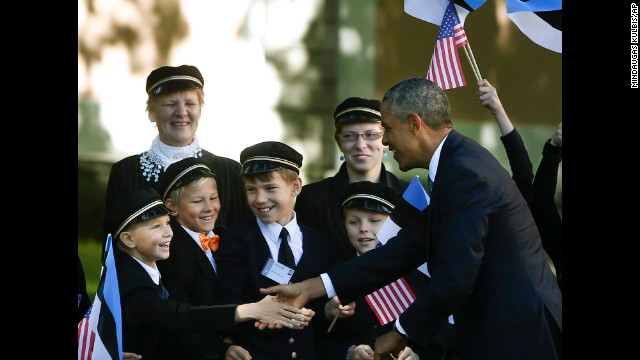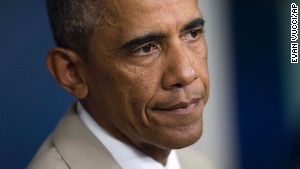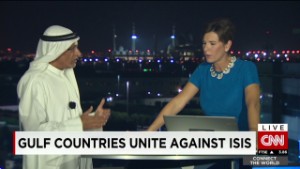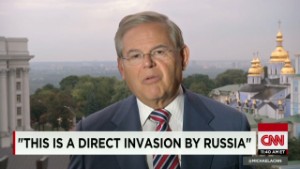Obama arrives in Europe with a warning for Putin
As Air Force One landed in Estonia's capital Wednesday, the U.S. message to Vladimir Putin -- only 500 miles away in Moscow -- was clear: Stay put.
President Barack Obama's
trip to the former Soviet state, ahead of this week's NATO summit in
Wales, is meant to reassure nervous Eastern Europe that Putin's support
for separatists in Ukraine doesn't mean he has a free pass for
territorial gains elsewhere.
The warning to Russia was
summed up by a top Obama foreign policy adviser last week: "Don't even
think about messing around in Estonia or in any of the Baltic areas in
the same way that you have been messing around in Ukraine."
Added to the schedule
only last month, the stop in Estonia will supplement the message coming
from NATO leaders gathering in Cardiff, Wales, who are set to announce
the positioning of troops and equipment closer to Russia in Eastern
Europe.
 Photos: Obama in Europe
Photos: Obama in Europe
 Foreign policy criticized by GOP & Dems
Foreign policy criticized by GOP & Dems
 ISIS is a threat to all Gulf countries
ISIS is a threat to all Gulf countries
 Senator wants to arm Ukrainian forces
Senator wants to arm Ukrainian forces
Speaking alongside
Estonia's President, Obama recalled the "deep ties" between the two
nations as he announced plans for additional U.S. Air Force units to be
based in Estonia as part of a bolstering of NATO forces in the region.
"One of our goals at the
summit over the next several days is to once again project unity across
NATO on behalf of Ukraine's efforts to maintain its sovereignty and
territorial integrity," Obama said.
He added that Russia was
"paying a heavy price for its actions," in part through Western
sanctions imposed over Ukraine, and that NATO is poised to do more to
help Ukraine defend itself.
The NATO leaders also
must confront the separate threat of militant Islamists making gains in
Syria and Iraq, and the brutal beheading of a second American by ISIS,
also known as ISIL or the "Islamic State."
Asked about his strategy
on the extremist group, Obama said: "The bottom line is this: Our
objective is clear, and that is to degrade and destroy ISIL so it's no
longer a threat not just to Iraq, but also to the region and to the
United States.
"In order for us to
accomplish that, the first phase has been to make sure we've got an
Iraqi government that's in place, and that we are blunting the momentum
that ISIL was carrying out.
"And the airstrikes have
done that. But now, what we need to do is make sure that we've got the
regional strategy in place that can support an ongoing effort, not just
in the air, but on the ground, to move that forward."
No comments:
Post a Comment